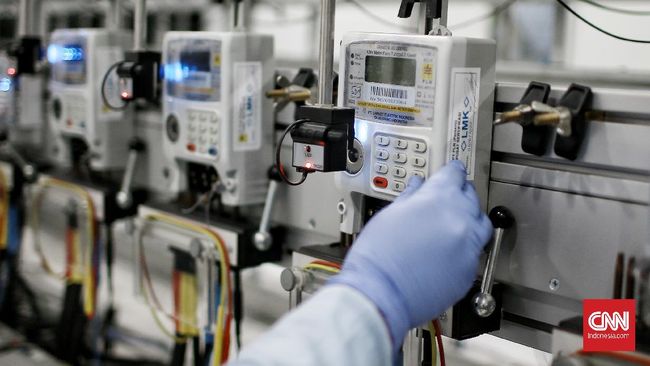Mamit Setiawan, Energy Observer, said the blackout electricity taking turns would be the worst case scenario of a supply crisis coal currently experienced by PT PLN (Persero). The worst case scenario occurs if PLN experiences a supply shortage for a long period of time.
“The possibility of rotating blackouts, if the supply shortage lasts long enough,” he told CNNIndonesia.com, Friday (7/1).
However, before the worst risk occurs, he believes the government will try hard to find a replacement energy source. For example, liquefied natural gas (LNG) or diesel.
TohCurrently, PLN is starting to get additional supplies from coal mining companies after the government implemented an export ban policy.
IESR Executive Director Fabby Tumiwa has a different opinion. According to him, apart from rotating electricity blackouts, the worst case scenario of a coal supply crisis is for the government to implement other policies, such as asking large electricity customers or industries to reduce consumption to reduce the burden.
Or, he continued, PLN would be forced to bear the higher price of coal if it failed to obtain supply from the domestic market obligation (DMO). DMO is the company’s obligation to meet domestic coal needs at a selling price of US$70 per ton.
The problem is, in a state of urgency like today, Fabby suggested that the government renegotiate the amount of the coal DMO obligation. For example, in the range of 35-45 percent.
In exchange, he continued, the government could provide benefits for entrepreneurs, such as the extension of the Coal Mining Employer’s Work Agreement (PKB2B).
“If there is a shortage of coal supply, first, PLN will turn off the generator because there is no coal,” he added.
Old Problems
Mamit said that in fact, the problem of a shortage of coal supply is not new. In fact, he calls this problem an old problem.
In the current crisis, he suspects that the fines imposed by the government on coal mining companies that do not deposit their DMO obligations are not too large. So, entrepreneurs prefer to export abroad.
However, he reminded that in this case it is not only businessmen who have to improve, but also PLN. The state stun company is considered to need to improve the trade system by not being late in paying its obligations to entrepreneurs.
It is known, previously the Director General of Mineral and Coal of the Ministry of Energy and Mineral Resources, Ridwan Djamaluddin, said that electricity supply for Java, Bali and Madura was threatened.
This is due to the low realization of the coal obligation for domestic needs (DMO) from coal entrepreneurs.
As a result, PLN’s power plants experienced a coal supply deficit at the end of last year. The safe supply of coal at PLTU PLN is above 20 days of operation.
“From the 5.1 million metric tons (MT) assigned by the government, until January 1, 2022, only 35 thousand MT were fulfilled, or less than 1 percent,” he said as quoted from the Ministry of Energy and Mineral Resources website, last Saturday (1/1).
To overcome this problem, the government decided to prohibit holders of Mining Business Permits (IUP) or Special Mining Business Permits (IUPK) from exporting coal. The ban will be in effect from January 1, 2022 to January 31, 2022.
(wel/one)
– .


